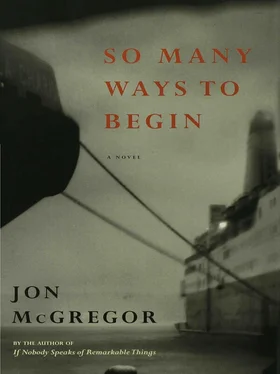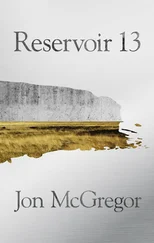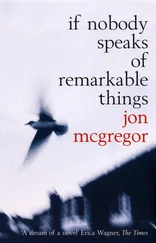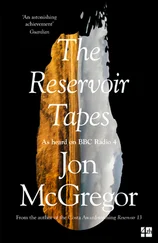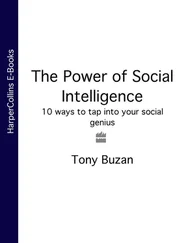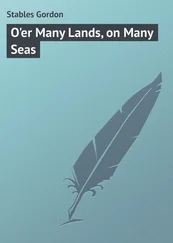When it happened, he had more or less given up. It was only habit which drew him back into Kate's old room a few evenings each week, looking for something to do before he went to bed; working his way through the lists, checking his email, searching through slowly and methodically and without any conviction that it was a worthwhile thing to do. He would sit on the folding metal chair in his pyjamas, running his bare feet back and forth across the carpet, squinting at the scrolling names or gazing blankly at his reflection in the darkened window while he waited for the modem to connect.
New Messages (1). Dear David. My mother's name is Mary Carr but her maiden name was Friel. She was in London during the war and gave up a baby boy for adoption in 1945. We'll need to talk more but I think she would be very interested to meet you.
When he called Eleanor's name, she came into the room with a toothbrush still in her mouth, her dressing gown hanging open around her nightdress. She said something inaudible, and he just pointed at the screen. She looked, and looked closer, toothpaste dribbling from the corner of her mouth as she tried to say it never is, is it? He nodded, not looking at her, not knowing what to say. They both looked at the words on the screen together, silently. She wiped at the spilt toothpaste with her sleeve, and laid her hand on his shoulder. He turned his face against her hand, and closed his eyes.
What are you going to do? she asked. He kissed her hand, and said nothing.
59 Ferry tickets; handwritten letter; route map (from website); all June 2000
It wasn't yet light when the ferry arrived. He stood out on the deck, his eyes stinging with sleep in the cold wet morning air. He looked out over the warehouses and lorry-parks, tracing the light-strung line of the motorway as it skirted around Belfast and headed towards the Lough. There was a map and a list of directions in the car's glove compartment, but he knew he wouldn't need them. He murmured the route to himself as the boat settled in against the jetty wall: M2 towards the airport, past Antrim, through Randalstown, through Londonderry, across the border. .
I'm going to Donegal, he'd said to his mother, a month ago, and she'd nodded and said right then, okay, okay. I've been in touch with a woman called Mary, he'd said, as gently as it was possible to say such a thing, her maiden name was Mary Friel, and she'd nodded and smiled and said right then, okay, okay, turning her face away from him as she started to cry, and he'd noticed again how much older she was looking, the veins of her neck swollen behind the skin like knotted cords, the backs of her hands arching at the knuckle.
They'd been driving for an hour when he saw the first flag, a worn-looking union flag hanging from a telegraph pole, and he remembered how very many more there had been the last time he was there. He counted another three union flags and a half-dozen tricolours, no more. The sun began to burn more brightly through the mist hanging low over the fields, the land falling away to their left as they climbed higher. Muddy-footed sheep scrambled away from the side of the road as they passed. He asked Eleanor how she was feeling, but she was asleep, or trying to be, and before he'd even noticed how far they'd come they were driving down the long hill overlooking Londonderry, across the bridge and out along the wooded road on the other side.
They were almost twenty miles into Irish territory before he realised they'd crossed the border, that they'd long since passed the spot where once there had been concrete blocks and tall steel fences, razor wire, soldiers with loaded guns and crackling radios; now there was nothing except a gravelled change in the texture of the road. They stopped in a lay-by for sandwiches and coffee and pieces of foil-wrapped cake, looking down over the long narrow bays of the inner coastline, the still grey water glinting in the strengthening light. Eleanor stretched, arching her back and lifting her face, and leant against David's shoulder.
All this sitting down's no good for an old body, she said, rubbing the sides of her legs and bending her knees.
Well, David said, you're not that used to it. Maybe you should go for a run before we go any further, he joked, get the blood moving. She laughed sarcastically and then turned to face him.
Do you think I look old though? she asked. She lifted her hand to her hair; I mean, does this count as grey hair now?
He smiled, and looked away, and said I don't know, maybe you could call it highlights. Distinguished highlights, he said, smiling. She laughed again, swirling the last of the coffee around in the bottom of the plastic mug, stepping away from the car and flicking the dregs on to the ground. She watched the shadows of small clouds slipping across the hillside on the other side of the narrow bay. They both stood still for a moment, listening to the quietness of the morning, not saying anything.
It doesn't seem like all that long since I was here before, he said. She pressed closer against him.
It's more than twenty years, she said. Kate was only three.
I know, he said. A lorry roared and clattered past, and they turned away from the dust and grit thrown up in its wake.
Where does it all go? Eleanor said. I don't feel old enough to have a daughter in her twenties already. He slipped his arm around her waist, pushing her round to face him. And you don't look old enough either, he said, smiling, really.
I do too, she said, pulling away, embarrassed. She looked down at the water again, watching a small red fishing boat struggling out on the tide, and said, you know, when I phone her up I'm still thinking of a ten-year-old Kate answering the phone, I don't know why, I can't help it.
I know, he said, me too. And he found himself thinking about her again, about how much of an adult she'd seemed at the funeral. He wondered what she would say if he told her now why he'd made that first trip to Ireland, the one she could barely remember, and why he was making this second one now. He tried to imagine being able to say such a thing. He wondered if she would understand, or if her indignant words would be familiar: Why didn't you tell me before? How long have you known? How could you not have told me this before? He thought about the photos he had of her in the albums on the back seat, which one of them showed her as someone old enough to have been told: the young woman leaving for university, the almost-teenager starting at big school, the young girl sugar-drunk with birthday-cake excitement, the toddler sitting on her proud grandmother's knee.
They got back into the car and headed for Letterkenny.
David,
I don't think I've written you a letter since you spent that fortnight in London with Julia, when you were fourteen. Do you remember? You said you wanted to see all the rooms in the British Museum instead of just a few. I'm not sure if you managed it. I can't remember why I wrote to you then, I think I was sending you some socks, wasn't I? Or I just wanted to know how you were. Stupid really, but I think I was missing you, and people didn't use the telephone so much in those days, did they? It was strange writing to you though, it took me a long time to think what to say.
But listen to me. I'm not getting to the point at all. There are some things I've been trying to say to you, and I haven't managed, so I'm writing them down and I'll give this to Eleanor to give to you before you go. Does that make me a coward, would you say?
Now I've been sitting here for half an hour, looking at the wall, and I don't know where to start. We've been over it so many times, maybe there isn't much point trying to explain myself again. I did the wrong thing, not telling you. You know that. But I thought it was the best thing to do and maybe you'll understand that one day. Maybe you already understand but you just haven't told me yet.
Читать дальше
Конец ознакомительного отрывка
Купить книгу
